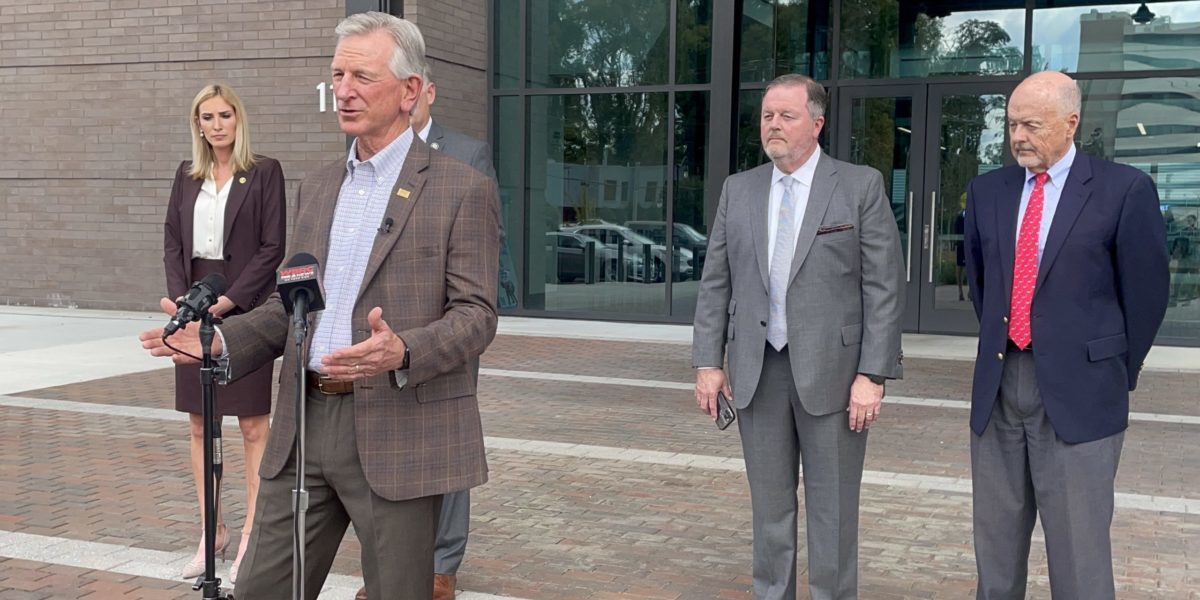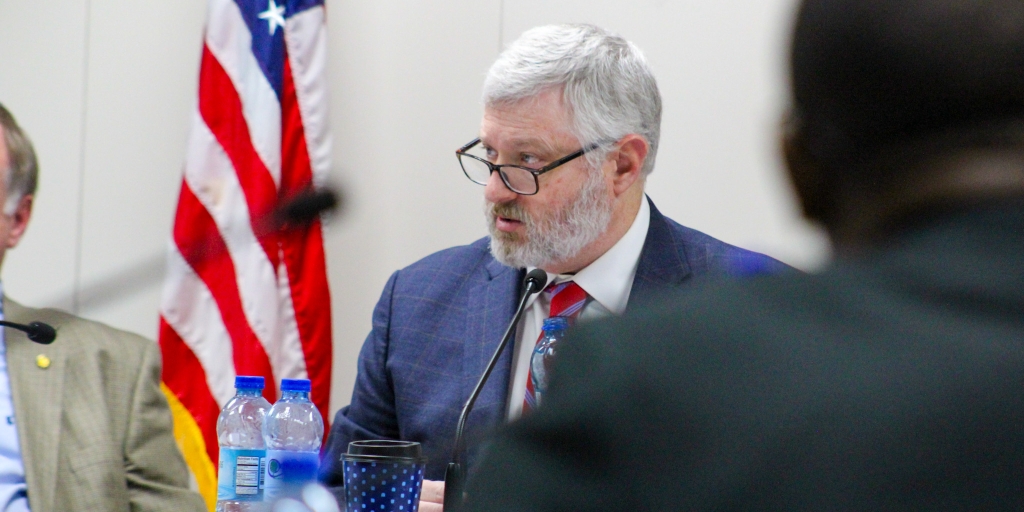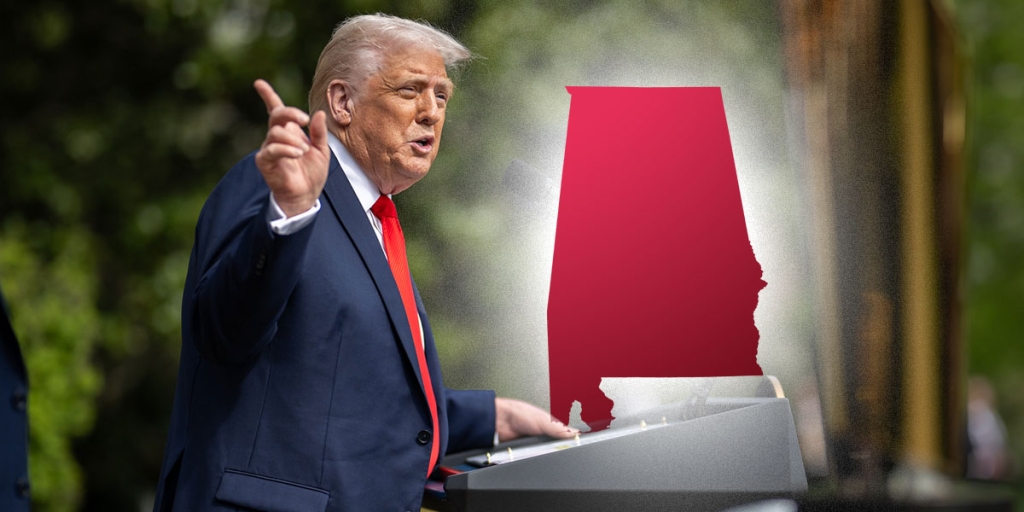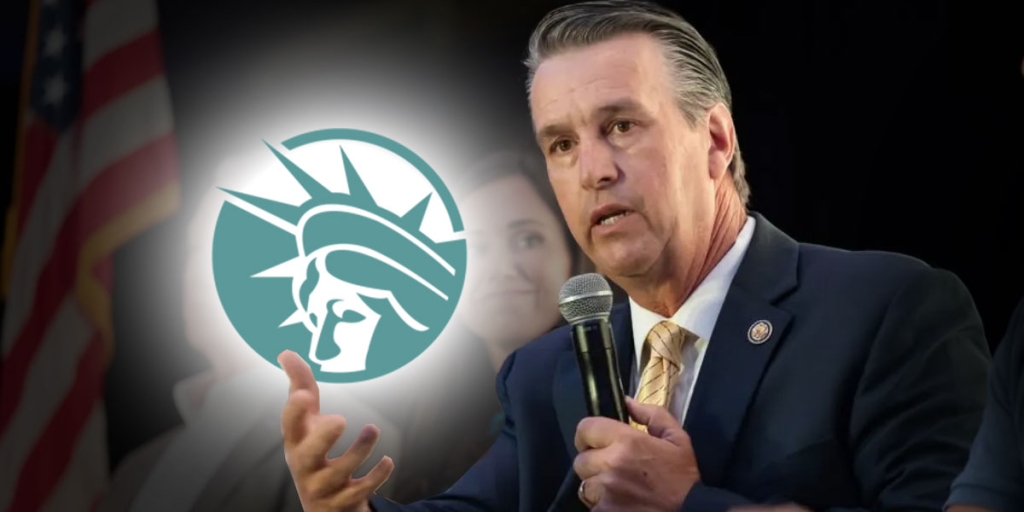BIRMINGHAM — U.S. Sen. Tommy Tuberville’s (R-AL) efforts to prohibit a controversial Internal Revenue Service (IRS) policy proposed by the Biden administration has garnered increased interest from consumers and banking industry leaders alike.
Alabama’s junior senator on Tuesday held a press conference with representatives from various associations and financial institutions promoting Tuberville’s “Protecting Financial Privacy Act.”
If passed and signed into law, the legislation would halt a recently-proposed IRS policy which allows the tax collection agency access to Americans’ banking activity exceeding $600. The administration’s proposal would mandate financial institutions to record such transactions and remit them to the U.S. Department of Treasury’s Financial Crimes Enforcement Network.
Currently, only cash transactions exceeding $10,000 are required to be reported to the federal government. The new IRS proposal drastically lowers this threshold and would expand in scope to include non-cash transactions.
The freshman senator last week brought his bill before the U.S. Senate for consideration and asked for unanimous consent to allow the legislation to pass the full body. Senate Democrats swiftly rejected to Tuberville’s motion, disallowing the legislation to move further.
The senator expressed his belief that opposition to the proposal is bipartisan, saying that it would have a negative effect on all consumers, regardless of class.
“I think it’s so important to the American people and everybody in the state of Alabama, I don’t care who you are… it’s something I think that’s really going to be detrimental to our country and our privacy – that’s the IRS,” advised Tuberville regarding the proposal. “This administration wants to weaponize the IRS more and more, they’re already weaponized enough, they already have enough of our information.”
“Now, they’re trying to pass a bill to where they can hire 80,000 to 100,000 more IRS agents,” said Tuberville, further stating he believes the massive hiring spree was an attempt by the agency to seek funds to be applied toward the administration’s ambitious spending agenda.
Tuberville warned of the cost that consumers would be forced to absorb should the IRS target their banking activity.
“They’re going to have a book on you as thick as you can imagine… we don’t need the IRS getting in our business anymore,” he declared. “What happens too is if they think you owe them any money at all they’re going to audit you. Then you’ve got to get either an accountant or lawyer and it’s going to cost you a lot of money.”
.@SenTuberville & banking industry leaders hold a press conference at Birmingham’s Protective Life Stadium promoting the senator’s bill, Protecting Financial Privacy Act. #alpolitics pic.twitter.com/zmVmNn65Dw
— Dylan Smith (@DylanSmithAL) October 12, 2021
“This is basically a tax on the American people… a way to raise money [for] big government to get in our business and we don’t need that to happen,” Tuberville stated. “So, I started this bill that’s called the Protecting Financial Privacy Act to say enough is enough.”
First Bank of Alabama representative Chad Jones praised Tuberville for his efforts to block the proposal, which he referred to as a “fishing expedition for the $3.5 trillion infrastructure bill.” Jones went on to stress what he sees as the importance to protect citizens’ Fourth Amendment right to privacy.
Echoing Jones’ sentiments was Steve Swofford, a representative of Alabama Credit Union, who stated that consumers stand in opposition to the “intrusive” IRS proposal.
“We’re hearing from our members, we’ve got them involved in this early on and they’re telling us they don’t trust government to gather this information and to use it properly,” said Swofford.
Scott Latham of the Alabama Bankers Association called the administration’s proposal “un-American.”
“When you think about the proposal itself, something that comes to my mind is that it is simply un-American, it is unprecedented,” said Latham. He went on to call the proposal a “harmful intrusion on privacy,” and further stated that consumers have expressed their concerns over the measure.
Grace Newcombe, director of federal advocacy for the Alabama Credit Union Association, pointed to the disproportionate impact the proposal would have on local credit unions as opposed to that of large corporate banks.
“The IRS reporting proposal announced by the Biden administration places a significant burden on our state’s credit unions, who are already compliant with both state and federal regulations,” explained Newcombe. She went on to add that it would be “nearly impossible” for small credit unions to effectively comply with the proposal due to the lack of resources, which she said larger financial institutions have.
Dylan Smith is a staff writer for Yellowhammer News. You can follow him on Twitter @DylanSmithAL













